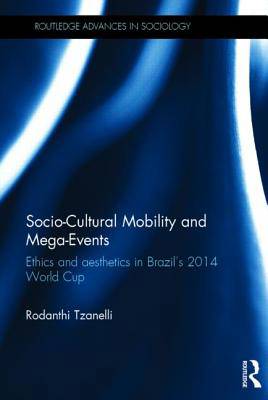
- Retrait gratuit dans votre magasin Club
- 7.000.000 titres dans notre catalogue
- Payer en toute sécurité
- Toujours un magasin près de chez vous
- Retrait gratuit dans votre magasin Club
- 7.000.0000 titres dans notre catalogue
- Payer en toute sécurité
- Toujours un magasin près de chez vous
Socio-Cultural Mobility and Mega-Events
Ethics and Aesthetics in Brazil's 2014 World Cup
Rodanthi TzanelliDescription
This interdisciplinary book uses Brazil's 2014 World Cup to explore how mega-events articulate socio-cultural problems. Critically examining the aesthetics and ethics of mobilities in the mega-event, this book explores these socio-cultural issues and controversies: the background of staging mega-events, including the bidding process and the host's expectations for returns; ceremonial staging and communications between artistic representations and national symbolism; and the clear reaction mega-events almost always generate in national, regional and global activist circles, including accusations of overspending and human rights violations.
Spécifications
Parties prenantes
- Auteur(s) :
- Editeur:
Contenu
- Nombre de pages :
- 208
- Langue:
- Anglais
- Collection :
Caractéristiques
- EAN:
- 9781138860087
- Date de parution :
- 20-04-15
- Format:
- Livre relié
- Format numérique:
- Genaaid
- Dimensions :
- 156 mm x 234 mm
- Poids :
- 471 g

Les avis
Nous publions uniquement les avis qui respectent les conditions requises. Consultez nos conditions pour les avis.






